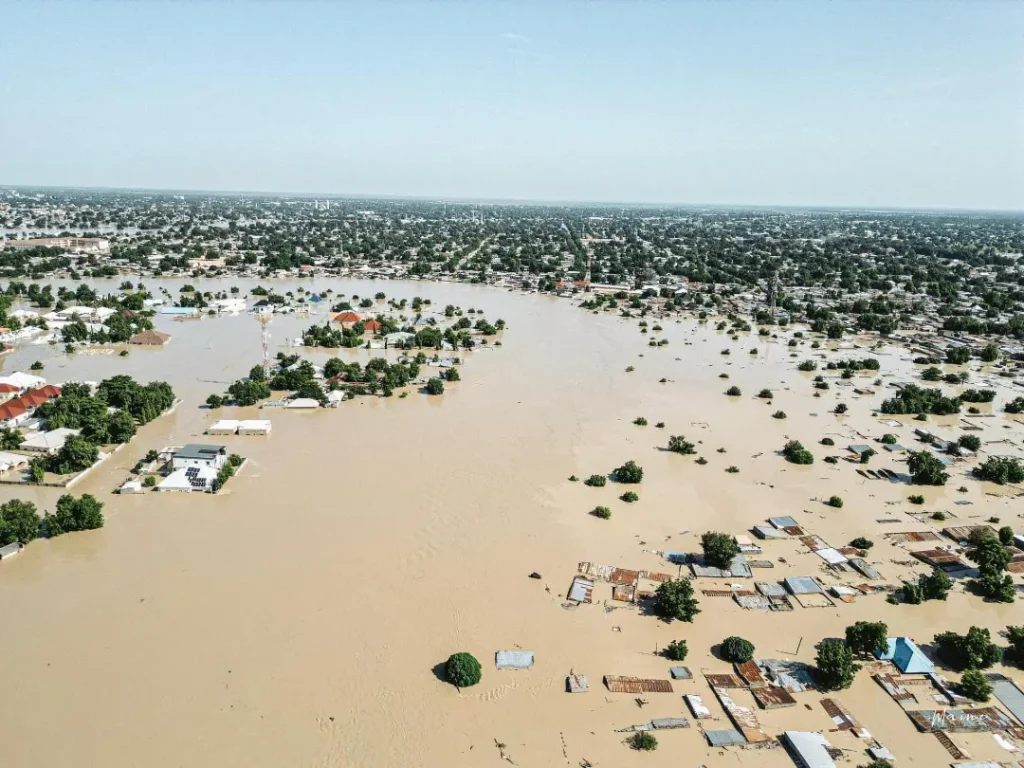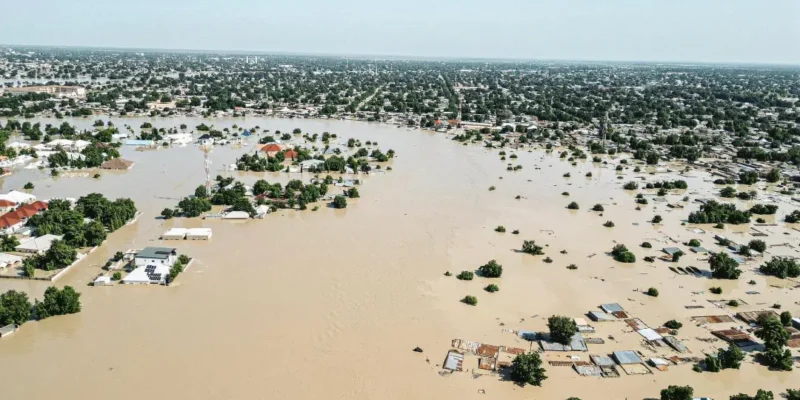
As Northern Nigeria swelters under an unrelenting heatwave, federal authorities have issued a grim warning: the region is also among the areas most at risk of severe flooding in the coming months.
The Nigerian Meteorological Agency (NiMet) recently raised an alert for 18 northern states, including Kano, Borno, Sokoto, and the Federal Capital Territory, warning that temperatures could soar as high as 40°C. The agency linked the intense heat to high humidity and clear skies following recent rainfall, urging residents to adopt preventive health measures to avoid heat-related illnesses.
Compounding the climate threat, the Nigeria Hydrological Services Agency (NIHSA) has identified 30 states and the FCT as high-risk zones for flooding in its 2025 Annual Flood Outlook. The forecast, presented by the Minister of Water Resources and Sanitation, Prof. Joseph Utsev, predicts significant flooding between April and November, especially in vulnerable states like Borno, Jigawa, Adamawa, and Zamfara.
In 2024, similar forecasts materialized into widespread devastation. One of the most tragic incidents was the collapse of the Alau Dam in Borno State, which claimed over 150 lives and wreaked havoc across Maiduguri and Jere LGAs. Elsewhere, floodwaters in Benue, Kebbi, and Kogi destroyed homes, farmlands, and livelihoods, with many affected communities still struggling without adequate support or resettlement.
Environmental expert, Professor Aliyu Nabegu, stressed the importance of public responsiveness to climate warnings. “Flood alerts are issued to prompt action, but unfortunately, many people ignore them,” he told DAILY POST. “Most of the damage we see is a result of human negligence—blocked drainage, poor waste management, and deforestation.”
Nabegu emphasized the need for individuals and communities to begin proactive preparations. He also warned that indiscriminate tree felling for firewood is exacerbating the region’s rising temperatures, calling for more sustainable energy alternatives and greater environmental awareness.
“The excessive heat is a direct consequence of climate change and deforestation. We need to think long-term,” he added.
To address the growing threats, the federal government has unveiled several initiatives, including a National Flood Insurance Programme (NFIP), an Integrated Climate Resilience Innovation Project (I-CRIP), and the Niger Flood Project—an ambitious effort to improve flood control and river management across several states.
As these plans unfold, local governments and communities are being urged to strengthen drainage systems, enforce environmental regulations, and engage in robust early warning communication.
For millions across Northern Nigeria, the coming months will not only test the accuracy of climate predictions but also the country’s collective ability to act before disaster strikes again.

Comments